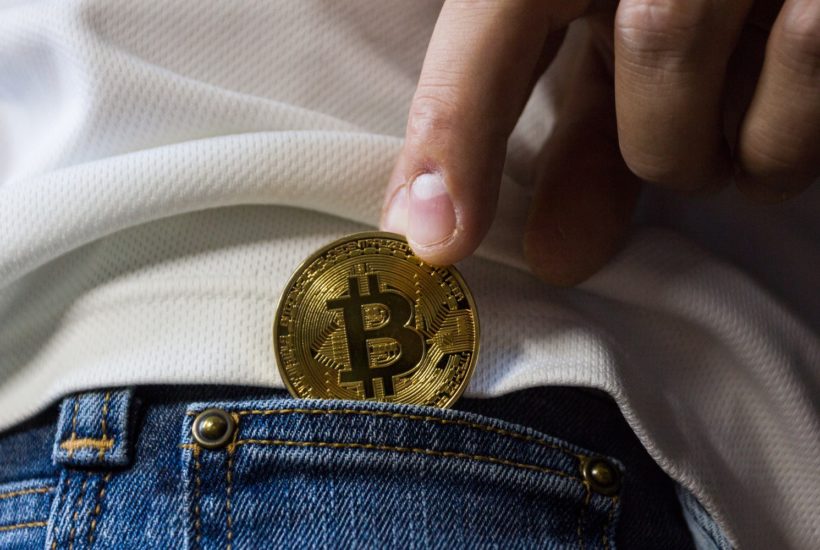Crypto
Crypto players want to be better regulated: are they crazy?
It is unusual to hear that a large number of industry stakeholders want stricter regulations, but this is exactly what is happening in crypto. Although this drive towards red-tape and regulatory rigor may appear masochistic at first, the reality is anything but. As crypto matures and integrates with traditional institutions, many crypto players are meeting resistance which regulation can solve.

“A framework to which we submit.” Following this sentiment expressed by Nicolas Louvet,
CEO of crypto company Coinhouse, crypto industry players are eagerly awaiting the introduction of “clear” and “uniform” standards at the European level. In constant change and development, crypto still gives rise to a lot of “fears,” according to Simon Polrot, president of the Association for the Development of Digital Assets (Adan), which represents some 40 companies in the sector.
Most of the fears come from the necessity of dealing with companies who are not in the crypto sector which are vital to a company’s ability to develop. One example is banks, who “do not yet have sufficient knowledge to understand the risk profile” and will therefore refuse, for example, to open a bank account, says Simon Polrot.
Staying up to date with the latest crypto regulatory developments and other finance headlines is easy with our free companion app, Born2Invest.
For the general public, the risk of a scam
Amongst the crypto players are virtual currencies, such as Bitcoin, as well those providing new means of financing by way of “tokens,” which open up financial or service rights using blockchain technology.
For the general public, these assets also suffer from their association with scams. The regulations “reassure potential customers,” says Nicolas Louvet, head of Coinhouse, a company that holds, buys and sells euro-denominated crypto-currency. His company was the first to receive a Digital Service Asset Provider (PSAN) licence from the Autorité des Marchés Financiers (AMF) in March 2020. They obtained approval after proof of compliance with obligations relating to cybersecurity, recording of movements and the use of service providers.
In France, the stock market authority has played an active role in developing a national framework following the introduction of the Action Plan for Business Growth and Transformation Act (PACTE). The legislation provided a framework for ICOs (Initial Coin Offerings), based on “tokens” that can be issued by companies in need of financing. “These are tokens that you buy in exchange for rights, such as access to a services or discounts,” explains Stéphanie Cabossioras, AMF Deputy Director of Legal Affairs.
France has thus created one of the most comprehensive systems in Europe. However, the regulations are very different from one European country to another. “There is a need for real harmonisation at the European level in order to have more coherence” and thus create a market capable of staying in the race with the other major world centres—the United States and Asia—points out Franck Guiader, who heads the firm Gide225, which specialises in digital transformation.
Another challenge, as soon as this regime was defined, “the players came back to the AMF about a new tool, the security tokens”, tokens that offer rights of a purely financial nature (dividend, interest or governance), in the same way as shares or bonds, relates Stéphanie Cabossioras. They are therefore subject to financial market regulations, which are mainly defined in Brussels. Using this system, based on the blockchain, makes it possible to reduce intermediaries and therefore transaction costs.
Reduction of transaction costs
The European Commission has also launched a stakeholder consultation in 2020 with a view to presenting a proposal for regulation of crypto players, which should be published in the following autumn. “Three years ago, there was nothing in Europe,” points out Emilien Bernard-Alzias, a lawyer at Simmons & Simmons in Paris. The road ahead is therefore immense, all the more so with other practices that are gaining momentum, such as “stable corners”, virtual currencies with fixed rates. In a changing world, the proposal should leave ample room for experimentation with new practices by players under the supervision of European Securities and Markets Authority (ESMA).
But the legislative process is long and European regulations will not be voted on for another year before they can come into force. In France, “90% of the time, the PACTE law has been useless for the moment,” points out Nicolas Louvet, who is impatiently waiting for the obligation to obtain PSAN approval to come into force for all companies in the sector, from December 2020.
__
(Featured image by Worldspectrum via Pexels)
DISCLAIMER: This article was written by a third party contributor and does not reflect the opinion of Born2Invest, its management, staff or its associates. Please review our disclaimer for more information.
This article may include forward-looking statements. These forward-looking statements generally are identified by the words “believe,” “project,” “estimate,” “become,” “plan,” “will,” and similar expressions. These forward-looking statements involve known and unknown risks as well as uncertainties, including those discussed in the following cautionary statements and elsewhere in this article and on this site. Although the Company may believe that its expectations are based on reasonable assumptions, the actual results that the Company may achieve may differ materially from any forward-looking statements, which reflect the opinions of the management of the Company only as of the date hereof. Additionally, please make sure to read these important disclosures.
First published in La Tribune, a third-party contributor translated and adapted the article from the original. In case of discrepancy, the original will prevail.
Although we made reasonable efforts to provide accurate translations, some parts may be incorrect. Born2Invest assumes no responsibility for errors, omissions or ambiguities in the translations provided on this website. Any person or entity relying on translated content does so at their own risk. Born2Invest is not responsible for losses caused by such reliance on the accuracy or reliability of translated information. If you wish to report an error or inaccuracy in the translation, we encourage you to contact us.

-

 Business1 week ago
Business1 week agoDow Jones Nears New High as Historic Signals Flash Caution
-

 Crypto6 days ago
Crypto6 days agoBitcoin Surges Toward $110K Amid Trade News and Solana ETF Boost
-

 Fintech21 hours ago
Fintech21 hours agoRipple and Mercado Bitcoin Expand RWA Tokenization on XRPL
-

 Fintech2 weeks ago
Fintech2 weeks agoMuzinich and Nao Partner to Open Private Credit Fund to Retail Investors
























